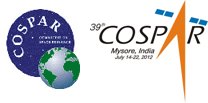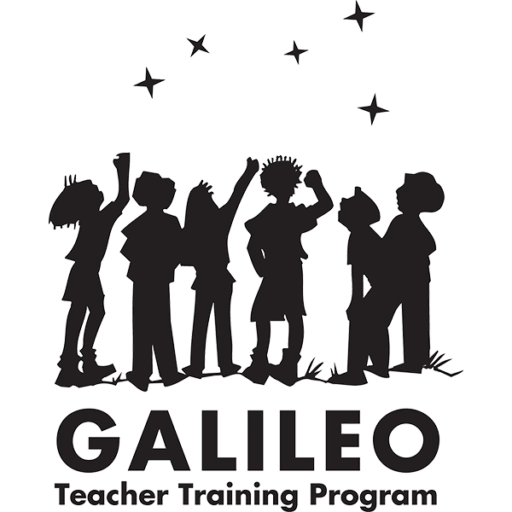COSPAR 2012 – Pannel of Education Session – 17 and 18 July 2012, @ Mysore

There will be a special GTTP session during the next COSPAR (COMMITTEE ON SPACE RESEARCH) Assembly that will take place in Mysore from 15th to 22nd of July. This session is integrated in the scope of the COSPAR Panel of education sessions PE-1 and PE-2. The training session will take place in the framework of session PE-2.
This will be the first teacher training session promoted by the Panel of Education (PE). The PE vision is to establish a strong and sustainable support network with the mission to integrate space research in science curricula across the world, empowering educators for this cutting edge task.
Empowering teachers with the needed literacy for the use of modern tools and resources for science education is an urgent matter. Among them, the use of Space, and the vast area of scientific and technological development it provides cannot be ignored by teachers and students.
Our proposal for this workshop is to provide participants with a general overview of modern tools for science education, their friendly use and the power they carry to perform real research in space sciences and astronomy in school. Participants will have the opportunity to learn how to use images data base (images from the main space agencies, available for free on the web), how to process images and ultimately how to include such resources in regular school curricula. Teachers will be introduced to powerful tools for data analysis, citizen science programs, etc
Important links:
The COSPAR main page: http://www.cospar2012india.org/Default.aspx
How to register at COSPAR: http://www.cospar2012india.org/Pages/1008-How-To-Register.aspx
How to apply for the GTTP training session: click here
Deadline for application extended to May 15 th !!!
(Filling the application is time consuming; don’t wait until the last minute)
Main Scientific Organizers
Rosa Doran (geral@nuclio.pt) (GTTP Chair)
NUCLIO – Núcleo Interactivo de Astronomia
Largo dos Topazios, 48 – 3 Fte, 2785-817 Sao Domingos De Rana
Portugal
Arvind Paranjpye
Nehru Planetarium, Nehru Centre, Mumbai
India
E-Mail: paranjpye.arvind@gmail.com
Michel Boer (michel.boer@unice.fr)
Universite de Nice Sophia Antipolis, IMREDD
Nice Premium, 1, boulevard Maurice Slama
06200 Nice France
Scientific Organizing Committee
B.C. Joshi (National Centre for Radio Astrophysics, Pune)
Carl Pennypacker (University of California at Berkeley)
George Miley (International Astronomical Union)
Hongfeng, Guo (National Astronomical Observatory of China)
Kevin Govender (Office of Astronomy for Development – IAU)
Pedro Russo (Universe Awareness – Leiden University)
Ranga Naranayan (University of Florida, Gainesville)
Toshihiro Handa (Kagoshima University)
Confirmed Solicited Speakers
Arvind Paranjpye (Nehru Planetarium, Nehru Centre, Mumbai)
Roger Ferlet (Institut d’Astrophysique de Paris)
Rosa Doran (NUCLIO – Galileo Teacher Training Programme – Portugal)
Programme – (tentative)
July 17th
14:30 – 15:00 GTTP around the globe (Presentation and overview) Overview of the programme and future perspectives
Tools and Resources – Online, physical materials and distribution
15:00 – 16:00 Planetaria Software: Stellarium, Celestia, WWT, Google Earth etc
Break (16:00 – 16:30)
Image Processing and Data Mining
16:30 – 17:30 Image Processing with Salsa J – Making movies, producing color images, analyzing Jupiter Moons, measuring craters etc
17:30 – 18:00 Sun4all How to make science using a data archive
July 18th
Robotic Telescopes
10:00 – 11:00 Robotic Telescope Session Introduction to the use of Robotic Telescopes
Hands-on Activities with daily materials
11:00 – 11:30 Home-made Spectroscope A spectroscope built with a cardboard tube and CD room
Coffe Break 11:30 – 12:00
Hands-on Activities with daily materials
12:00 – 12:30 The many faces and phases of the Moon and Venus A nice example to teach about the phases of the Moon and Venus
12:30 – 13:00 Planetary Calculator How to build a planetary calculator out of everyday materials
Closing Session: Evaluation and Round Table
13:00 – 13:30 Evaluation of the session, future activities and Round table
Materials – All teachers will need to bring the following material: Laptop, kitchen Ccoth cardboard tube, scissor, a CD room, cereal box, insulating tape, scotch tape.
About ‘Galileo Teacher Training Program’
 The International Year of Astronomy 2009 (IYA2009) provided an excellent opportunity to engage the formal education community in the excitement of astronomical discovery as a vehicle for improving the teaching of science in classrooms around the world. An incredibly rich store of useful astronomy resources is available for such an effort, much of it in digital form and freely available on the internet. However, experienced educators and outreach specialists identify a critical impediment: many teachers lack the training to understand these resources or use them effectively in their curricula.
The International Year of Astronomy 2009 (IYA2009) provided an excellent opportunity to engage the formal education community in the excitement of astronomical discovery as a vehicle for improving the teaching of science in classrooms around the world. An incredibly rich store of useful astronomy resources is available for such an effort, much of it in digital form and freely available on the internet. However, experienced educators and outreach specialists identify a critical impediment: many teachers lack the training to understand these resources or use them effectively in their curricula.
To address this problem and to sustain the legacy of IYA2009, the IAU embarked on a unique global effort to empower teachers by developing the Galileo Teacher Training Program (GTTP). The GTTP goal created a worldwide network of “Galileo Ambassadors” having today representatives in over 100 nations worldwide. More than 10 000 teachers have been trained by promoters around the globe until 2012. The mission of trainers (Galileo Ambassadors), is to help create an interactive and efficient support network of Galileo Teachers (teachers successfully implementing modern tools for science teaching in classrooms).
These Ambassadors will train teachers in the effective use and transfer of astronomy education tools and resources into classroom science curricula. The Galileo Teachers will be equipped to train other teachers in these methodologies, leveraging the work begun during IYA2009 in classrooms everywhere. Through workshops, online training tools and basic education kits, the products and techniques developed by this programme can be adapted to reach locations with few resources of their own, as well as computer-connected areas that can take advantage of access to robotic optical and radio telescopes, webcams, astronomy exercises, cross-disciplinary resources, image processing and digital universes (web and desktop planetariums)
